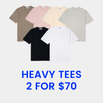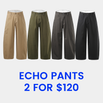Words by Keane Fletcher
Perth-based singer-songwriter Charlie Wilde feels like a romantic. Sorry that’s Romantic, with a capital R. Equal parts Keats, Shelley and Justin Vernon, Wilde’s unique brand of reverb-tinged indie-folk feels like a throwback to simpler, broodier times when words were everything and emotion reigned supreme.
‘I have a really big belief in using poetry as a musician. When I was first developing my lyrical style I would often read any poems I could, learning structure, which phrases the beats were landing on etc.. Even now when I am stuck I go back to a couple of reliable books I own to look for key phrases that could inspire me.’
Believe me when I say these are songs to listen to at night, while it rains, with a glass of red wine. And I mean that in the best possible way. Understated yet urgent, vulnerable yet defiant, Wilde manages to pack a hefty emotional wallop into his sparsely arranged songs, thanks in no small part to his considered lyrics and gossamer-thin vocals.
With an exciting new video release on the way and his star most certainly on-the-rise we sat down with Wilde to talk all things music, inspo and what being a modern day Lord Byron means to him. Check it out below.
1- Where in the world are you based at the moment?
Currently I am based in Perth, but I would like to get back to gigging in my hometown of Melbourne in the Future.
2- How would you describe your sound? Who are your musical influences?
I often have my sound described for me as ‘ethereal’, but I find that genre-wise I fit into that difficult to describe indie box, with a good amount of folk in there too. I have a good deal of artists who have influenced and shaped my sound, namely Keaton Henson who showed me that sincerity in our vulnerability can be so powerful. For my bigger set-pieces I often draw from Patrick Watson and Wooded, whilst closer to home Lucas Jones is an incredible artist who has shown me so much, and I’m incredibly lucky to work with him.
3- How does the songwriting process usually work for you? Has the COVID-19 affected your creativity over the past year?
I’ve never had a specific process, almost every song has had different facets form far faster than the rest of the piece, but generally I do tend to start with either music or an idea, and I have a vast amount of lyrics in various that I can then bring into the fold. Ultimately though a lot of my songwriting comes from strong moments in my life. I wrote disquietude for example the night of my Low Fidelity launch, about half an hour before I had to head to the venue. I was so nervous to play that the frustration built up into what became disquietude.
4- Your songs are very vocally expressive. Have you had any vocal training or has singing always come naturally to you?
I have had a bit, I studied music at university so I know how to go about training my voice, but I wasn’t exactly the best student and I don't have the patience to do exercises. The best thing that vocal training gave me though was to be able to get through a set without harming my voice. My ‘Charlie’ voice is technically awful as it sits right in your throat, so if you’re not careful you can really do some damage.
5- You've been described as 'Byron-esque' and a lot of your songs feel like poetry set to music. Is poetry something that interests you? How important do you think lyrics are to a song?
I have a really big belief in using poetry as a musician. When I was first developing my lyrical style I would often read any poems I could, learning structure, which phrases the beats were landing on etc.. Even now when I am stuck I go back to a couple of reliable books I own to look for key phrases that could inspire me. My brother is a writer so he always points me in the right direction there. I spend a lot of time putting as much as I can into my lyrics, so to me they’re incredibly important. When I create my lyrics, I always try to lace several different meanings or interpretations into a song. Usually there is a surface level emotive message, that is easily accessible and easy to emphasise with, often there is also a contention that you’ll have to dig a little deeper to find, and even deeper still will be my story or reason for writing the song. By writing this way I’ve found that I my music can be both for people who need it and myself, who only writes as a means to combat how i’m feeling.
6- Do you believe the accessibility of streaming platforms such as Spotify and Soundcloud have made things easier or harder for new artists?
This is such a difficult question that I’m sure must be different for each person, but for someone such as myself who finds it difficult to approach a stage I can’t fault that streaming has helped me get my name out there. At the same time, such large sects of our industry are purely exploitative of musicians and streaming musicians, and sadly I don’t see that changing anytime soon.
7- You've spoken before about your performance anxiety when it comes to live shows, and yet you've also spoken about the fact that songs about this anxiety are often the easiest to perform. What do you think it is about music that enables us to address topics we might otherwise find uncomfortable? Can music be used as a tool for social change?
For me there is a strength to singing about your greatest weaknesses, and it’s what I’ve built Charlie Wilde around, but with anxiety, it’s more like a beast that you are constantly tying to tame, and I don’t often win that battle, which is something I touch upon in For You #3, the last song in what you could call my anxiety trilogy. I’ve always tried to focus on sincerity with this project, so for me it’s not necessarily about addressing topics that are uncomfortable, other artists have already done that hard work for me to the point where I don’t feel the need to disguise my mental health, music has always been a tool to exact great social change, if enough people are listening to your message your influence and by extension your alignments will spread, for better for worse.
8- We hear you may be about to drop something very special in the coming weeks. Can you tell us a little bit about it, or are you sworn to secrecy?
I can’t tell you how pleased I am to announce the impending release of the official music video series for Antithesis. I can’t reveal too much just yet, but it is part of a bigger project that has come a long way after some big covid-related delays. I was lucky enough to work with some very talented people on this, and there is more to come very soon.
More to come next week! Stay tuned.
Thanks for stopping by Hipland.



